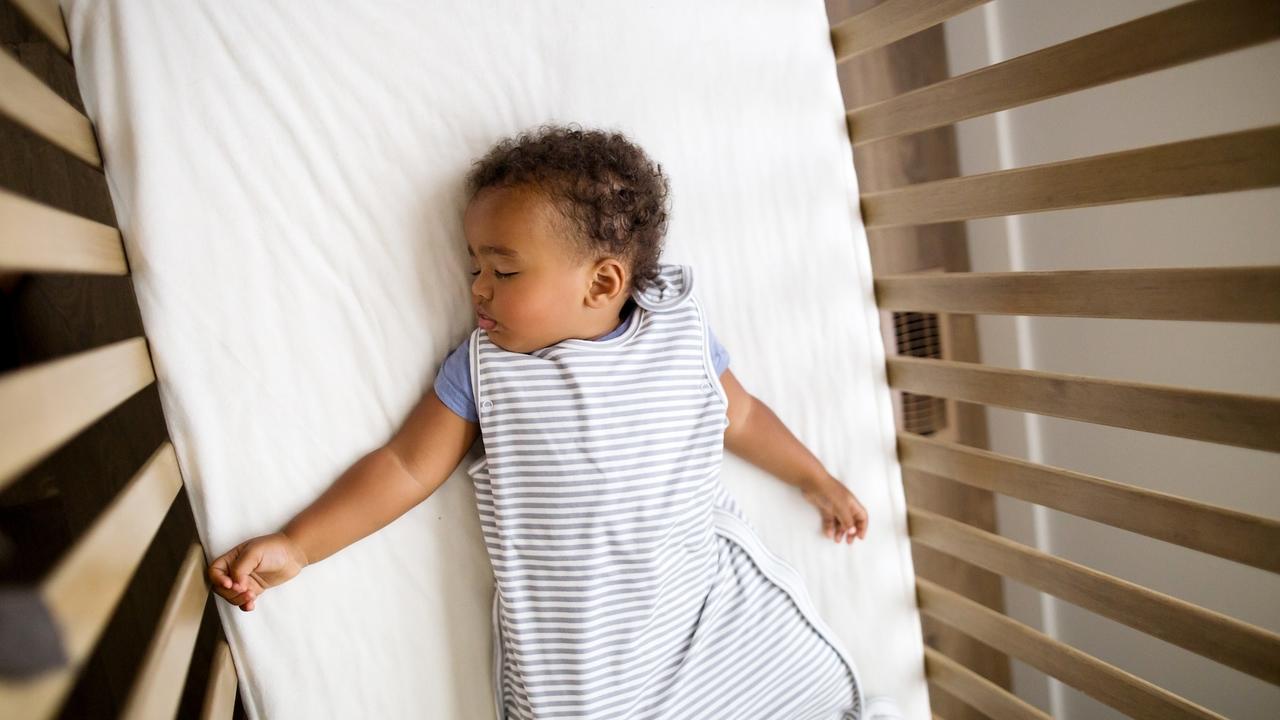When do babies sleep through the night?

Deemed the holy grail of infant sleep, this would have to be one of the most asked questions following soon after the birth of having a baby. If I got a dollar for every time I was asked this question, I would be taking our girls to Disneyland every day and living in a luxurious mansion on the beach! :)
Truthfully, the answer as much as I wish it was is not straightforward nor is it a single response! There are also differences in the definition of how long sleeping through the night actually is...some say 6-8 hours, others say 10, or 12. These can also change depending on the age of the baby!
Many experts weigh in with this question and the opinions are vast! Some experts say not until a baby reaches 6 months of age. Others say they need to double their birth weight or reach a specific weight. For example, they need to be at least 17.5lbs/8kg (or sometimes less).
For the purposes of this blog post, I am going to define sleeping through the night as 10-12 hours of sleep without needing any night feeds.
You will know by now that ALL babies are different. You only need to look at your antenatal group to know that all the babies sleep through the night at different times. If you’re looking for averages, here are some statistics below:
- Most babies don't start sleeping through the night (6 to 8 hours) without waking until they are about 3 months old, or until they weigh 12 to 13 pounds. (Stanford Children’s Health)
- According to the National Sleep Foundation, 70-80% of babies are sleeping through the night by 9 months old.
The thing is, when babies are able to sleep through the night and when babies actually do sleep through the night are two different stories.
As hard as this may be to hear, it is completely normal and common for babies to wake once a night due to hunger until they are well established on eating solid food which can be around 8-9 months of age. It is perfectly normal and understandable to have these night wakes while your baby is transitioning from mostly milk feeds to getting their calories during the day from solid foods.
It is always best to consult with your pediatrician to find out whether your baby no longer needs any night-time feedings. Your pediatrician is trained to assess your baby by looking at weight gain and will make the best call based on their assessment.
Using our own family as an example, our eldest daughter Annabelle started sleeping through the night at 8 weeks of age. She was in the 25% percentile for her weight and was mix fed with breast milk and formula. Our second daughter Evie who was born at exactly the same weight didn’t start sleeping through the night until between 9-10 months of age but also got stuck on an early morning wake at 5.18 am for weeks! She was breastfed and I was always doubting my milk supply so out of fear she was hungry (which in hindsight she most certainly was not!), I created an early morning wake habit!
Ultimately, you’re the one who knows your baby best. You’ve learned how to read your baby’s cries and hunger cues. Let your own instinct also guide you and make sure to seek medical advice from your pediatrician when it comes to cutting milk feeds.
If you’re really unsure if your baby has the ability to sleep through the night, here are some factors that can impact night sleep:
- Your baby is going through a sleep regression. These commonly coincide with big developmental changes.
- Your baby is sick. Sick babies need their parents and if your little one has previously been sleeping well, often sleep goes out the window when they are unwell. This is usually temporary and once they are well again, you can get back to having a good little sleeper.
- Your baby is unable to fall asleep independently. If your little one has a sleep crutch such as feeding, rocking, shushing, patting to sleep, etc it is highly unlikely that when they wake up during the night that they will be able to fall back to sleep on their own. This is where they need to LEARN the skill of falling asleep independently. It is absolutely possible however it will take time and patience. But once mastered, this will significantly improve their ability to sleep through the night.
- Their sleep environment is not conducive to sleep. In many instances, the sleep environment is not taken as seriously as sleep schedules or teaching self-settling, but just by making small changes so that it is perfect for sleep can really impact your little one to sleep through the night.
- Your baby is overtired or under tired. Most commonly, overtiredness is a huge culprit for frequent night wakings and also early morning wakes. This may mean that you need to look at your little one’s schedule to make sure that their wake windows are appropriate for their age. You can find more information on wake windows HERE.
Sleeping through the night most certainly is possible however it can happen at such different times depending on your baby. Sometimes simply adjusting expectations can take the pressure off frustrations and just know that your little one will get there!













